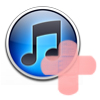 Apple has released a new version of its iTunes software, patching an enormous number of vulnerabilities in the popular music application. Version 10.5 of iTunes includes fixes for several dozen flaws in WebKit alone, and also has some updated functionality designed to support new components coming in iOS in the near future.
Apple has released a new version of its iTunes software, patching an enormous number of vulnerabilities in the popular music application. Version 10.5 of iTunes includes fixes for several dozen flaws in WebKit alone, and also has some updated functionality designed to support new components coming in iOS in the near future.
The latest release of the iTunes software, which Apple uses not only as a music-playing application but also a control system for iPods, iPhones and iPads, has fixes for vulnerabilities in a slew of components, including ColorSync, CoreFoundation, CoreAudio, CoreMedia and ImageIO. But the largest number of bugs fixed in iTunes 10.5 belongs to WebKit, the framework that underpins iTunes and the Safari browser. There are 73 separate bugs fixed in WebKit in iTunes 10.5, all but one of which are memory-corruption vulnerabilities. Several of the WebKit flaws could lead to remote code execution, while others only result in denial-of-service conditions or a crash of the iTunes software.
The vulnerabilities fixed in iTunes 10.5 only are present on versions of the software running on Windows machines. Some of the flaws did not affect systems running Mac OS X, while others were fixed in various security updates for OS X or in the release of the new Lion operating system. The list of researchers and groups credited with finding vulnerabilities fixed in this release makes for some interesting reading. While a fair number of the bugs were identified by internal people at Apple, several others were discovered by members of Google’s Chrome security team and another was reported by David Weston of Microsoft.
An independent researcher who uses the handle Miaubiz was credited with discovering nine of the WebKit flaws and Sergey Glazunov got credit for six of them, as well. Both of those researchers have made a habit out of collecting large cash rewards from Google through that company’s bug bounty program in the last year and half. If Apple had a similar program, which it does not, they would have been at the top of the list there, too.
For iTunes users on Windows, you can download the updated version of the software by going to Help, and then clicking Check for Updates.









